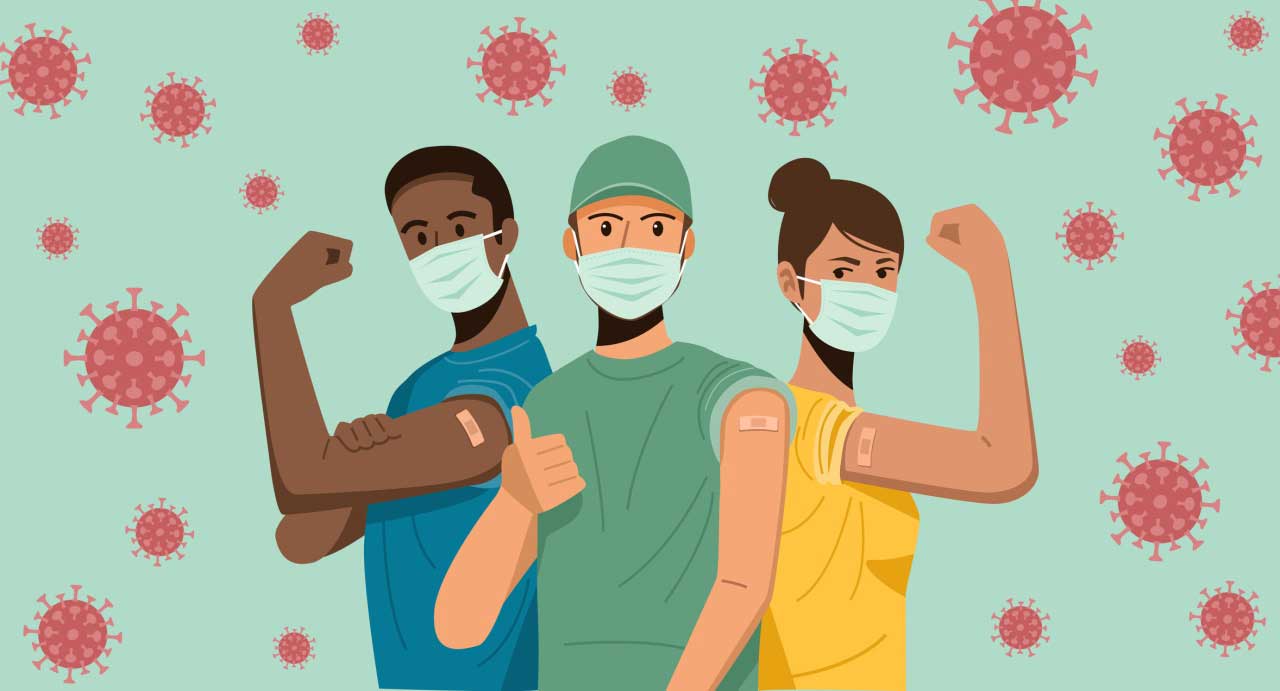Data was collected and analyzed from 1.2 million coronavirus patients over 18 who received two doses of the mRNA vaccine or one of the Johnson vector vaccines between December 2020 and October 2021, i.e. before the Omicron wave. & Johnson, according to Deutsche Welle.
There are eight risk factors.
Results: Severe illness was rare. Of the 1.2 million vaccinated, only 2,246 (0.18%) fell ill despite being vaccinated. In 189 of them (0.015%), the disease proceeded severely with acute respiratory failure, non-invasive ventilation of the lungs or hospitalization in the intensive care unit. Of these, 36 died, corresponding to 0.0033% of all study participants.
At least one of the eight risk factors listed below was identified in all patients with severe disease. And in 75% of the dead they were found at least four:
– age over 65 years (risk is 3.2 times higher)
– weakened immune system (1.9 times higher risk)
– chronic lung diseases (the risk is 1.7 times higher)
– chronic liver diseases (the risk is 1.7 times higher)
– chronic kidney disease (risk is 1.5 times higher)
– neurological diseases (the risk is 1.5 times higher)
– diabetes mellitus (risk is 1.5 times higher)
– heart disease (risk is 1.4 times higher)
Infected people who were immunized with BioNTech/Pfizer had a slightly higher risk of severe illness than those who were vaccinated with Moderna.
Researchers have highlighted the effectiveness of vaccination against severe diseases. According to another recommendation, it is especially important for people at risk to receive a booster dose of the vaccine.
Vaccine discoveries on the rise
There has been a growing number of vaccination breakthroughs in Germany lately – cases in which people fall ill despite having been vaccinated.
From February 1, 2021 to January 13, 2022, the Robert Koch Institute registered a total of 600,223 such cases. In recent weeks, the 18-59 age group had the highest proportion of vaccine breakthroughs at 55.3%.
In other words, of all people aged 18 to 59 who contracted COVID-19 in the last four weeks, 55.3% were fully vaccinated but had not yet received a booster dose. This proportion is 53.7% for those over 60 and 22.5% for those aged 12 to 17.
However, Robert Koch emphasizes that with high vaccination coverage (over 72%), it is logical to increase the number of breakthroughs. In addition, vaccines to date have been shown to be over 90% effective in preventing severe coronavirus infection with the Delta variant.
Booster dose is the key to preventing Omicron
However, the situation is different with Omicron. According to the first data available to the Robert Koch specialists, protection is no longer sufficient only 15 weeks after the second vaccination. However, after a booster dose of BioNTech/Pfizer, a person is well protected by Omicron. According to the health authorities, this efficacy can be assumed for the Moderna vaccine as well. Booster vaccination provides the best protection against Omicron, says influential virologist Christian Drosten.
Therefore, the Standing Committee on Vaccination in Germany recommends a booster dose of the mRNA vaccine for all persons over 12 years of age, but not earlier than three months after the second dose. Because of the frequent vaccinations at Johnson & Johnson, it is recommended that an additional dose of the mRNA vaccine be administered to all those vaccinated with it at least four months after the initial immunization.

